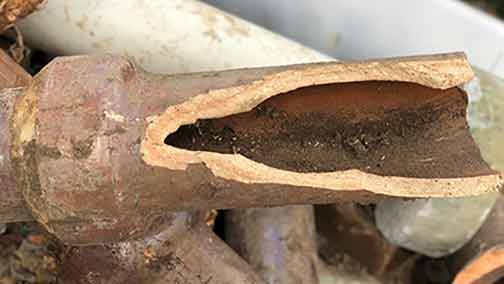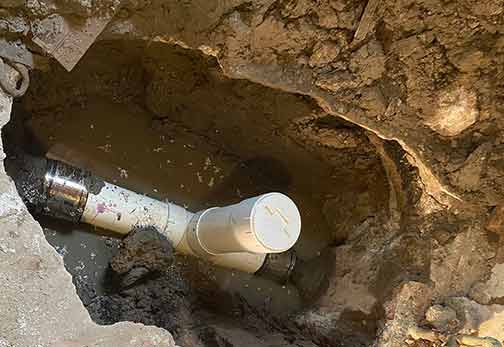
The sewer line that runs beneath the ground in your home is the vital connection between your home’s plumbing system and the city’s main sewer line in the street, says State Property Management LLC. This pipe transports all the wastewater from your home into the municipal wastewater management system.
Sewer pipes are tough enough to withstand pressure and the other forces underground pipes are subject to. They can work for many years without any signs of trouble. But this is not to say that the sewer line or pipe in your home cannot get broken because they can.
Several things can break your home’s sewer line. Five of the most common ones are:
Soil movements
The soil surrounding the underground pipe may shift. This most common form of soil movement is called settling. When the soil around the pipe settles, it creates a dip along the line. Over time, the buildup can occur in this downward slope, leading the pipe to eventually break.
Poor installation
If the pipe is not installed with the proper downward slope, the possibility of clogs and blockages becomes higher. Sewer pipes with an inaccurate downward slope will ultimately break. Substandard piping materials will also lead to the failure of the sewer line.
Damage by tree roots
If there are trees or shrubs in the vicinity of the line, their roots can endanger the sewer pipes. Tree roots may penetrate sewer pipes in a bid to access the nutrient-rich water inside them. If this happens, the pipe will not only break but will be blocked by plant roots.
Aging pipes
Pipes become more predisposed to damage with age. This is the accumulated result of years of wear and tear. Some kinds of pipe materials such as metal pipes are more prone to damage than others. Old sewer lines will leak and clog more often than newer ones.
Abusing the sewer line
Homeowners often assume the sewer line is capable of handling anything they throw at it. As a result, they dump grease, fats, oils, and other materials into the line. Anything other than human waste and toilet paper inside your sewer lines can result in the pipes breaking.
How can you tell if your sewer line is broken and what should you do to solve the problem?
Common signs of a damaged sewer line include:
- The odor of sewer from the drain or around the yard.
- Lush green areas in the yard, distinct from other parts of the yard.
- Puddles of water or soft spots in the yard that are not caused by rain or irrigation.
If you notice these problems in your home, you may suspect a crack in your sewer line. What can you do if the sewer pipe is broken?

Having Your Sewer Line Repaired by a Professional Plumbing Company is Your Best Bet
How to handle a broken sewer pipe
A broken sewer pipe will not only interfere with your use of the home’s plumbing, but it can also endanger the health of your family. If left unattended, the damage will become more extensive and more costly to repair. Eventually, it can even compromise the city’s sewer lines.
Here are ways to handle a broken sewer line:
Locate the damaged pipe
Pinpointing the location of the damaged pipe makes it easier to assess the damage and determine the best way to solve the problem. If the pipe is in the crawlspace or basement, finding the damaged section is easier. Otherwise, you will need a professional plumber to conduct a video camera inspection of the sewer line.
Evaluate the damage
The camera inspection will tell you the extent of the damage. If you are lucky, and a small section of the sewer line is damaged and the damaged portion is within easy reach. The evaluation will also identify the root cause of the pipe damage and recommend the best way to repair or replace the sewer line.
Repair or replace the sewer line
Depending on the cause of the problem and how far it has gone, you have two courses of action open to you. On one hand, you may only have to repair the damaged section of the pipe. On the other hand, you may need to replace your entire sewer line.
Fix the pipe
To repair the damaged pipe, you have two options. The first method involves excavation: digging a trench in your yard to reach, retrieve, and replace the damaged pipe. This method is invasive, time-consuming, and expensive. You will also have to fix your damaged landscaping afterward.
The second option is a trenchless method that does not involve excavation. Instead of digging up your lawn, the section of the damaged pipe is repaired by relining it. This method is quick and effective. It is the recommended fix for your broken sewer line.
Replace the sewer line
This is the final and costliest option. This solution should only be applied if it is not possible to fix the broken line. Most times you will only need to replace an entire sewer line if the pipes are old and deteriorating or there have been significant shifts in the soil surrounding the pipes.